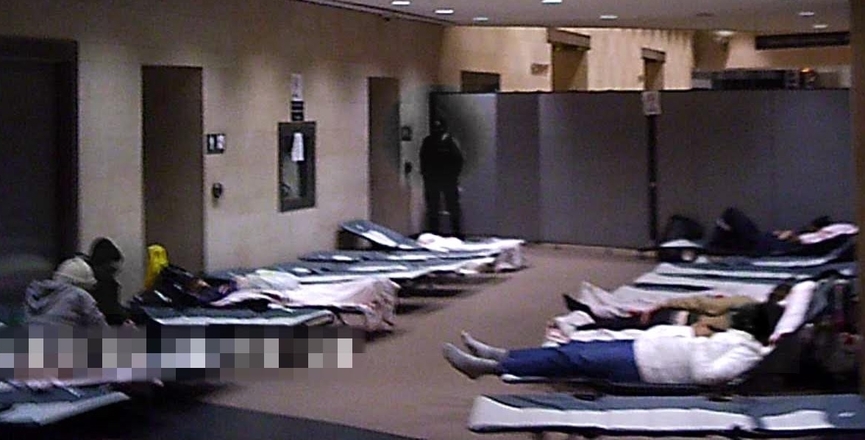Toronto is in the midst of “Winterlicious,” a culinary event where over 200 restaurants participate in three-course prix fixe menus for lunch and dinner. One of the events offered is called “Hungry for Comfort: Surviving a Canadian Winter.” Its description is intriguing: “Come together with fellow food enthusiasts to explore how different peoples survived and thrived in Canada’s bitter winter.”
Toronto is also in the midst of a homeless emergency and an extreme cold alert.
When Toronto Public Health calls an extreme cold alert, a hallway at Metro Hall is opened as a warming centre for 50 people who are homeless.
How do homeless people in Canada’s largest city survive and thrive? Here is their “winterlicious” menu:
- 24/7 -The warming centre offers hot drinks (coffee, tea and hot chocolate) and hot soup as well as light snacks (oatmeal and granola bars).
On the second day of operating due to an extreme cold weather alert the warming centre will offer:
- Breakfast: bagels, butter and cream cheese
- Lunch: 50-bagged lunches (two sandwiches, fruit, cookies and a drink box)
- Dinner: 50-bagged lunches (two sandwiches, fruit, cookies and a drink box)
Over the last two decades activists have tried to convince city officials to provide more sustenance in the form of hot meals, knowing that the people coming in are very much on the margins, are ill and malnourished and are not often accessing food at shelters, soup kitchens or drop-ins.
I decided to ask some food and nutrition experts for their thoughts on the menu currently provided.
“It is appalling and it is a good representation of how we collectively, as a society think about and treat people who are homeless. There is a cold (literal and metaphoric) bureaucratic efficiency to this menu, a minimalist approach, as if to say ‘we can’t let them die but we certainly aren’t going to treat them well,'” said Elaine Power, a sociologist of food and food studies scholar.
Joshna Maharaj, a chef known for her activist social justice work and for making food programs more healthy at both hospitals and Ryerson University, said:
“The biggest challenge with the food served in this warming center is that it contains mostly refined, and thus quite nutritionally empty starch and sugar. None of this food will really sustain a person, and it will definitely not offer the nourishment and fortification that a person sleeping outside really needs. These are the cheapest calories available, and they’ll do an adequate job of filling the tank. But they won’t resolve hunger, or provide any nutritional boost to these folks who are out there, living in especially rough conditions. In a broader sense, there’s a bigger problem happening here. Like many others, I believe strongly that access to good, nutritious food is a basic human right. The food that’s being served to people in warming centers like this does not meet these needs. We need to have our eyes open to the fact that street-level folks are being denied some basic human rights with this cheap, industrial menu.”
Food journalist Marion Kane said:
“I believe that food and shelter are human rights. People who don’t have them are lonely, depressed and alienated from the rest of society. Good food gives energy and nutrition. It also feeds the human spirit, especially when shared with others. The warming centre at Metro Hall can do better than a bagged lunch and dinner. Hot meals such as macaroni and cheese, shepherd’s pie or meat/vegetable stew could be served — accompanied by coleslaw or other salad. Fruit and some kind of simple cake make a nice dessert.”
This single warming centre for all of Toronto should never have opened in a hallway, in a government building, without kitchen access. It is yet another example of Toronto’s homeless emergency that Mayor John Tory and city council are ignoring.
Sign the petition calling on Mayor Tory to declare homelessness an emergency here.
Cathy Crowe is a street nurse, author and filmmaker who works nationally and locally on health and social justice issues.
Image: Contributed/Cathy Crowe.



